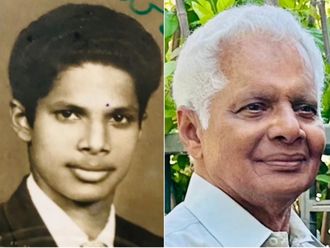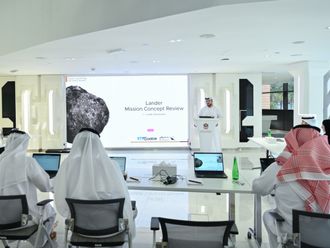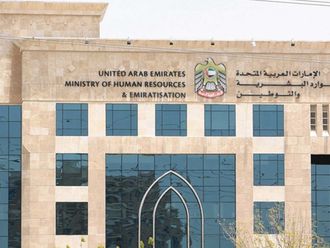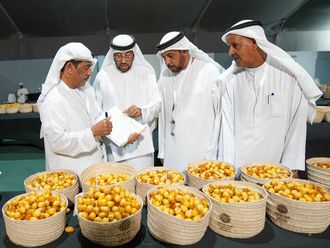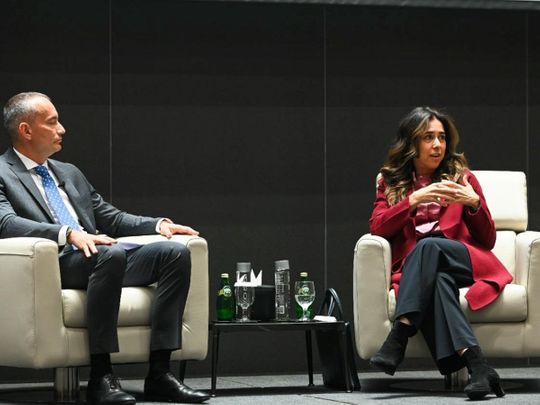
Abu Dhabi: The UAE will continue to push for climate action, counter terrorism efforts and women’s empowerment during the second year of its second term on the United Nations Security Council, even after an eventful and disruptive first year with the world body, a top diplomat said in the capital.
Speaking at the Anwar Gargash Diplomatic Academy, Lana Nusseibeh, Assistant Minister of Foreign Affairs and International Cooperation for Political Affairs, and Permanent Representative of the UAE to the United Nations, said she hoped this coming year will also be one of ‘getting things done’.
Bridge builder
“We came to the Council with a number of ambitious agenda items, and events impacted what we were able to achieve. In fact, we have had to deal with a hugely disruptive geopolitical event — [the Russia Ukraine conflict — perhaps the defining one of our time. In the face of that, we have tried to build on our foreign policy of being a bridge builder. Looking to Year 2, I think we hope to continue pushing forward on the agenda items that remain important to the international system, and work towards compartmentalising this conflict so that it does not impact our ability to mobilise on other defining and important topics. That is really our ambition: a little bit of ambition, a lot of compartmentalisation and a lot of bridge building,” Nusseibeh said.
Nusseibeh was discussing the UAE’s experience on the Security Council with Nikolay Mladenov, AGDA director general, during the session that saw the attendance of numerous diplomats, officials and AGDA students on Wednesday.
Security Council role
The UAE previously held a seat on the Council, one of six organs at the United Nations that is charged with maintaining international peace and security, between 1986 and 1987.
At present, the Council has a total of 15 members, including five permanent members — China, France, the Russian Federation, the United Kingdom, and the United States, and 10 non-permanent members. The UAE was elected in June 2021 with four other non-permanent members, namely Albania, Brazil, Gabon, and Ghana.
Terrorist attack
During the discussion, Nusseibeh reflected on the first year, including the Houthi terror attacks on the UAE in the first month of the UAE’s second stint on the Security Council, and the start of the Russia-Ukraine conflict the following month.
“Nothing prepared us for not only the February event where, in many ways, European security was upended for the first time since the Second World War, but for the direct attack on our own country on Jan. 17, with a missile from a drone by the Houthis in Yemen. This really shaped our Security Council term within months … Every Emirati diplomat [felt] that this was why we had been called on to serve. That sense of service, that sense of why we were there, was very much brought to the fore on Jan. 17,” Nusseibeh said.
And although things were already tense in the UN as a result of a brewing conflict in Europe, Nusseibeh said the UAE was able to act in order to protect its residents from further such instances.
“In a tense environment, we were able to achieve a council condemnation of the Houthi attacks … We were able eventually to bring about a resolution that labelled the Houthis as a terrorist entity, and put a full arms embargo on them. I think these were the diplomatic measures that a country is called on to utilise in its own defence,” she said.
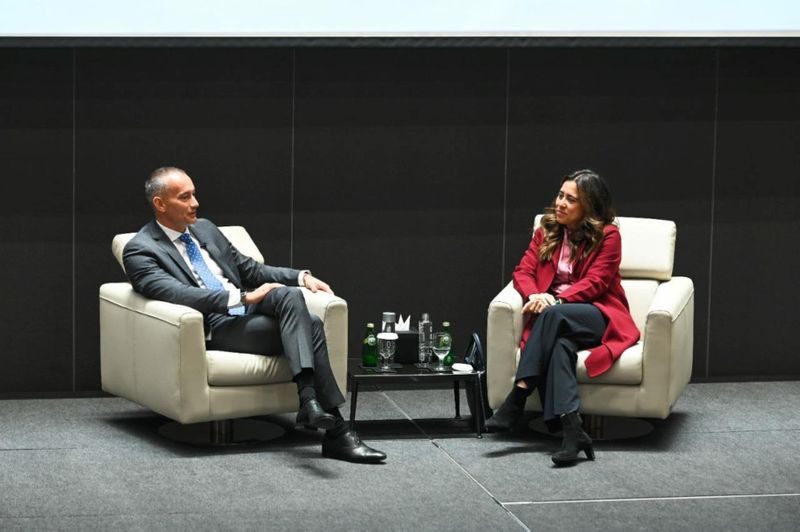
Upcoming actions
The diplomat said the breaking out of the Russia-Ukraine war in February complicated international relations and action, but that she and her team hope to work with their peers on issued of common ground.
“This year, we are coming on to the Council with some fire. We are chairing the counter terrorism committee, taking over from India. We are going to be co-chairing two informal working groups on climate change and women, peace and security, and they are with cross-regional partners like Switzerland and Mozambique,” Nusseibeh said.
Women empowerment
Another area of focus is the situation in Afghanistan, and Nusseibeh stressed women’s right to education in the country, and their importance in non-governmental organisations. This focus ties in with the UAE’s own prioritisation of women empowerment.
“I think on women, peace and security, there is a really solidifying consensus on the importance of the agenda, that women need to be at all the top tables in all mediations in order for peace to be long-lasting and stable. It sounds like a no-brainer but it is still not implemented. The UAE has been pushing forward on this file for a number of years prior to our Security Council, with our support of UN Women, with the Sheikha Fatima training of peacekeeping cadets from [various] countries in the Middle East, Asia and Africa and a number of other areas. We have been at the forefront of this file, and actually, we are remarkably high up, not just in empowerment indicators,” Nusseibeh said.
“One of the ways we are trying to push the UN system is by asking to show the metrics on women, peace and security, and the numbers on how many mediators you are putting forward on peace processes. We’d like to see the pipeline on women peacekeepers. We are very much pushing forward with the UN system and our Security Council membership not to just pay lip service to the topic but to prove it with outcomes and metrics. This is one area where we can continue to make progress, and push countries not to just make statements on the day of the event but also to demonstrate tangible outcomes,” she added.
Climate action
Ahead of the UAE’s hosting of COP28 in November 2023, the nation will also continue to urge climate action, despite a veto in 2021 on linking the climate crisis to international security that has complicated efforts.
“We are trying to pragmatically find the nuances and areas which we can work on. As an example, where climate language is objected to in a mandate or resolution, we will find language that is acceptable, but that speaks to climate impacts on security situations, like the drought in Afghanistan. There are other situations where we’ve pushed for climate-related language, because it’s important not to just take on the full ideology of another country’s position, but to work around the edges to find the practical pieces, and recognise that climate needs to be a part of UN missions on the ground,” Nusseibeh explained.
Emirati diplomats
Nusseibeh’s visit to the AGDA also afforded an opportunity to highlight growing opportunities for Emirati diplomats.
“Our term on the Security Council is a once-in-a-lifetime opportunity for our diplomats and our foreign ministry. Its legacy will be not only the resolutions that we adopt, but the class of Emirati diplomats, many of them trained by AGDA, who will go on to do great things on our country’s behalf,” she said.


